Contact: Jenesse Miller, (213) 810-8554 or jenessem@usc.edu
Who will best use the platform to rise in the polls?
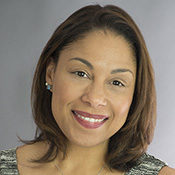 “In night one, I’ll be looking for how nine of the candidates deal with the one person on the stage who is surging in the polls: Elizabeth Warren. In night two my eyes will be on Kamala Harris and Pete Buttigieg because they are in the midst of a flip-flop in fortunes. While Harris is continuing to attract endorsements, she seems to be steady at fourth place in the polls. Her job will be to give people a reason to choose her over Bernie Sanders and Joe Biden that night and move up in the polls.
“In night one, I’ll be looking for how nine of the candidates deal with the one person on the stage who is surging in the polls: Elizabeth Warren. In night two my eyes will be on Kamala Harris and Pete Buttigieg because they are in the midst of a flip-flop in fortunes. While Harris is continuing to attract endorsements, she seems to be steady at fourth place in the polls. Her job will be to give people a reason to choose her over Bernie Sanders and Joe Biden that night and move up in the polls.
“Buttigieg, who was a bit of a wunderkind early on, has some very unflattering news that has pulled him off the campaign trail and poses a real challenge to his image as a fresh millennial face with new solutions. His job will be to steady himself and get back to the campaign in a way that does not look like he is ignoring the officer-involved shooting that occurred last week.”
Ange-Marie Hancock Alfaro is the chair of the department of gender & sexuality studies and professor of political science at the USC Dornsife College of Letters, Arts and Sciences. She is a globally recognized scholar of the intersections of categories of difference like race, gender, class, sexuality and citizenship and their impact on policy.
Contact: (213) 740-6998 or ahancock@usc.edu
How will the media cover the debates?
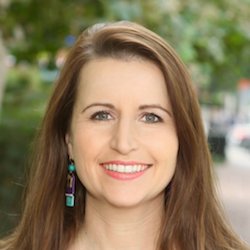 “The news media almost exclusively shapes public opinion following a debate. If you make video or audio news or the top of a written story, it’s because you landed an attack, were able to shine brighter than others, had a great laugh line or made a major error. In rare cases, it’s because you had a great night and made news.
“The news media almost exclusively shapes public opinion following a debate. If you make video or audio news or the top of a written story, it’s because you landed an attack, were able to shine brighter than others, had a great laugh line or made a major error. In rare cases, it’s because you had a great night and made news.
“Viewers should listen and avoid watching news highlights that force ‘winners and losers.’ Form your own decisions! The good news is that voters are highly interested in the stakes of the 2020 race and want to hear about real policy plans, not just attacks on President Trump.”
Christina Bellantoni is a professor of professional practice and the director of the Annenberg Media Center at the USC Annenberg School for Communication and Journalism. Over her 20 years in journalism, she has covered local, state and federal government, along with four presidential campaigns and the White House.
Contact: (202) 725-6820 or christina.bellantoni@usc.edu
Will the front-runners maintain their lead?
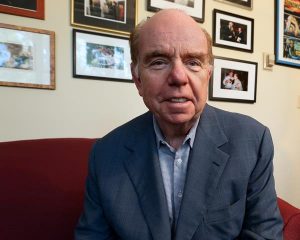 “If you’re Joe Biden, the thing you most want to do in this debate is demonstrate vigor and command of the issues. People assume that but, given his age, they want to make sure. For [Bernie Sanders], your goal would be to look like a happy warrior instead of an angry warrior.
“If you’re Joe Biden, the thing you most want to do in this debate is demonstrate vigor and command of the issues. People assume that but, given his age, they want to make sure. For [Bernie Sanders], your goal would be to look like a happy warrior instead of an angry warrior.
“They’re going to look for a moment, for a line, an opening, something that can capture people’s attention get out and really work. I think people are shopping, and so if you make a good impression that can stay with you.”
Robert Shrum is director of the Center for the Political Future at the USC Dornsife College of Letters, Arts and Sciences, an expert in presidential elections, political advertising and policy and a longtime Democratic political strategist. His comments were excerpted from an interview on PBS Newshour.
Contact: (202) 338-1812 or shrum@usc.edu
What do the candidates expect to achieve?
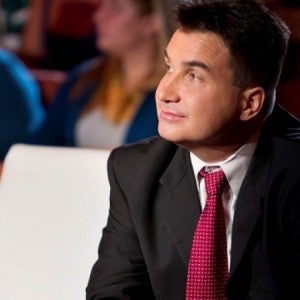 “These debates begin the process of the candidates distinguishing themselves from each other. As with the 2016 Republican presidential primary debates, there are front-runners built on broad public opinion but each candidate has to demonstrate certain qualities to potential voters.
“These debates begin the process of the candidates distinguishing themselves from each other. As with the 2016 Republican presidential primary debates, there are front-runners built on broad public opinion but each candidate has to demonstrate certain qualities to potential voters.
“The candidates with greater name recognition will seek to enhance their stature and their capacity to challenge the president. For many of the other candidates they will seek out opportunities to stand out both to potential voters and to create sympathetic news cycles.”
Gordon Stables is a clinical professor at the USC Annenberg School for Communication and Journalism, director of the School of Journalism and a past president of the American Forensics Association and the Cross Examination Debate Association.
Contact: (213) 740-2759 or stables@usc.edu
Will the debates motivate voters to turn out?
 “The debates are the rare occasion that the public is able to see the presidential candidates side-by-side arguing about how the country should be run and what the country should look like in the future.
“The debates are the rare occasion that the public is able to see the presidential candidates side-by-side arguing about how the country should be run and what the country should look like in the future.
“The Democratic primary debates provide a platform for the public to get to know the candidates, compare the candidates, and motivate the public to go the polls in 2020. Though, the debates may have difficulty in achieving these outcomes given they include 20 candidates.”
Kiran Dhillon is a lecturer of communication at the USC Annenberg School for Communication and Journalism and the immediate past director of Debate & Forensics for USC’s nationally recognized Trojan Debate Squad.
Contact: (213) 821-4146 or kkdhillo@usc.edu
How will the candidates stand out from the crowd?
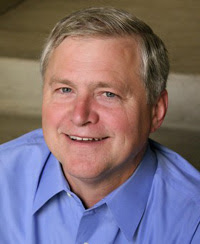 “Given the very crowded field, the challenge for all of these candidates is to say something that makes them stand out: a memorable quip or soundbite that will be widely quoted by the media in the post-debate analysis.
“Given the very crowded field, the challenge for all of these candidates is to say something that makes them stand out: a memorable quip or soundbite that will be widely quoted by the media in the post-debate analysis.
“They need to find a defining issue that clarifies their candidacy. Finally, they need to make sure their memorable soundbite is not a gaffe.”
Thomas Hollihan is a professor of communication at the USC Annenberg School for Communication and Journalism and an expert in argumentation, political communication and media diplomacy.
Contact: (213) 740 3947 or hollihan@usc.edu
After the debates: What happens next?
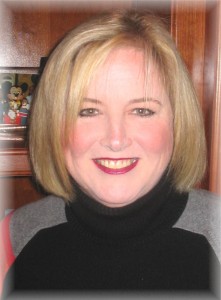 “Democrat candidates will battle to best articulate the judgment that Trump and his advisors are incompetent at the business of running the government. With so many candidates and so little time, viewers will only get a glimpse at the style, warmth and ‘presidential-ness’ of each person.
“Democrat candidates will battle to best articulate the judgment that Trump and his advisors are incompetent at the business of running the government. With so many candidates and so little time, viewers will only get a glimpse at the style, warmth and ‘presidential-ness’ of each person.
“Polling about the debate will be useful to insider campaign advisers to fine-tune which audience members respond most strongly to their candidates’ appeal. We can expect the Democrat candidates to all move forward until their money runs out.”
Dora Kingsley Vertenten is a professor at the USC Price School of Public Policy and an expert in political consulting, election campaigns, political parties and social media.
Contact: (202) 298-7313 or kingsley@usc.edu



